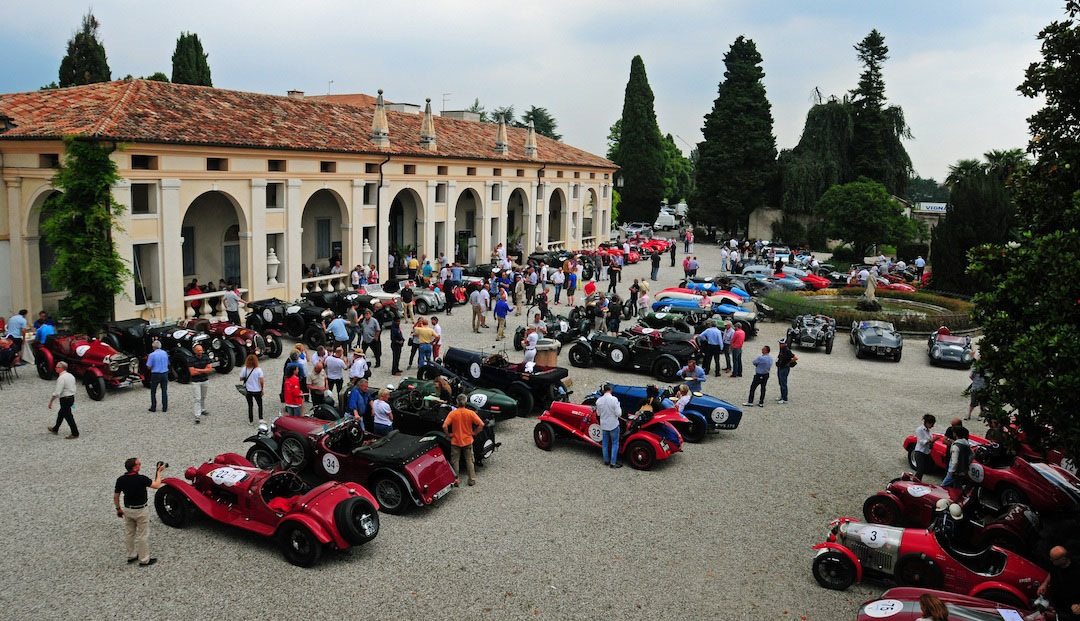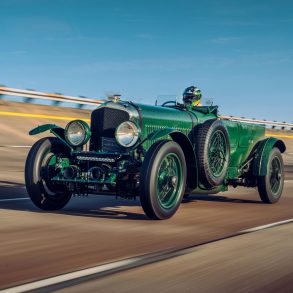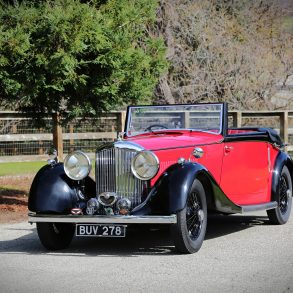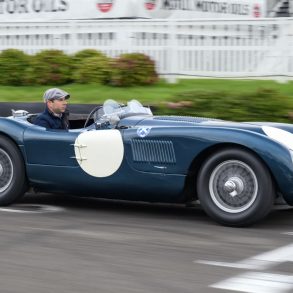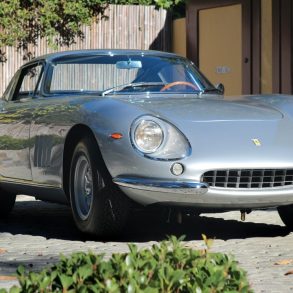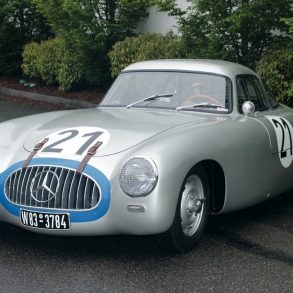Since 2003 Le Mitiche Sport a Bassano has shown signs of a healthy future with many features not normally found in fixtures of this type. Under the organization of the Circolo Veneto Automoto and headed by the excellent Stafano Chiminelli, Le Mitiche now offers three days of superb driving for an entry limited to approximately 100 cars, with good hotels, superb organization and almost hassle-free motoring. The Circolo’s greatest asset is that it consists of a passionate group of club members who just want to organize the best event that they possibly can. In addition they are a non-profit organization, and this is reflected in the cost, meaning there are no horrendous entry fees.
This year’s format started with scrutineering and formalities in the small town of Romano d’Ezzolino just outside Bassano del Grappa in the Veneto. The regulations require that entries must consist only of open cars – barchettas, spiders, cabriolets, sports racers etc. – with a date cutoff of 1960.
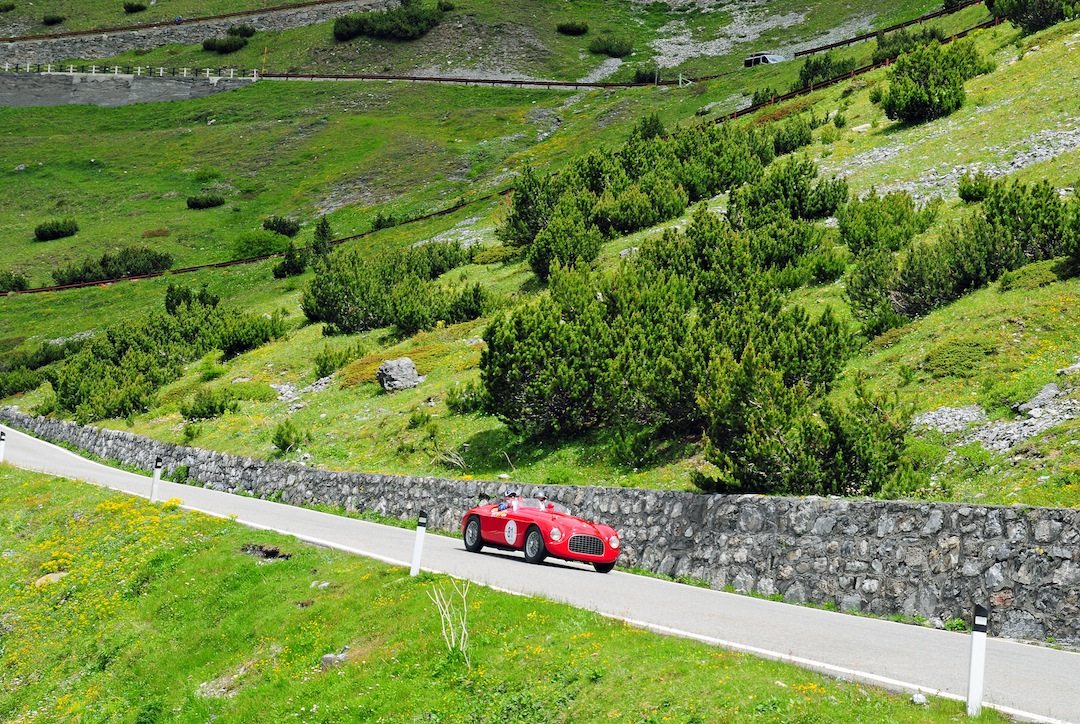
This year the oldest car was Venanzioro Fonte’s Alfa Romeo RL Targa Florio from 1924, a fabulous piece of kit that I had the pleasure of running behind up the Passo Manghen on the first day until its owner found it had too long gearing for mountain work and substituted a more touring example of Arese’s handiwork. It also had an explosive exhaust that was sheer music, but of which the owner also suggested, ”You wouldn’t want to take it to church on a Sunday.”
Eddie McGuire, of Gordini and Cooper Bristol fame, works tirelessly on behalf of the event, coordinating entries from across the world and running himself in his blower 4.5-liter Bentley among a 13-example cache of these cars. The overall entry, from 11 countries, started and ran in car date chronological order with earliest cars at the front and latest at the back. Example figures were five Ferraris including 340 MM and 166 MM. There were five Maseratis, including 250S, 300S and A6GCS.
Out of seven Jaguars including C- and D-Types, one was the unique Barou-bodied 120 of Wolfgang Techel. As well as the RL there were both 6 and 8C Alfa Romeos. OSCAs, Lancias, Amilcars and more. I must express a huge thank you to Gianni Codiferro for making available his Porsche 550 Chamonix for our participation.
Two overnight stops were included in the itinerary and, as this year’s event was concentrated in the Trentino/Alto Adige areas, these were Bolzano and Trento, cities not far apart but in the two and a half days of driving, participants needed to cover around 530 kilometers in total. Various tests are included of the short, regularity, type in order to establish a finishing order.
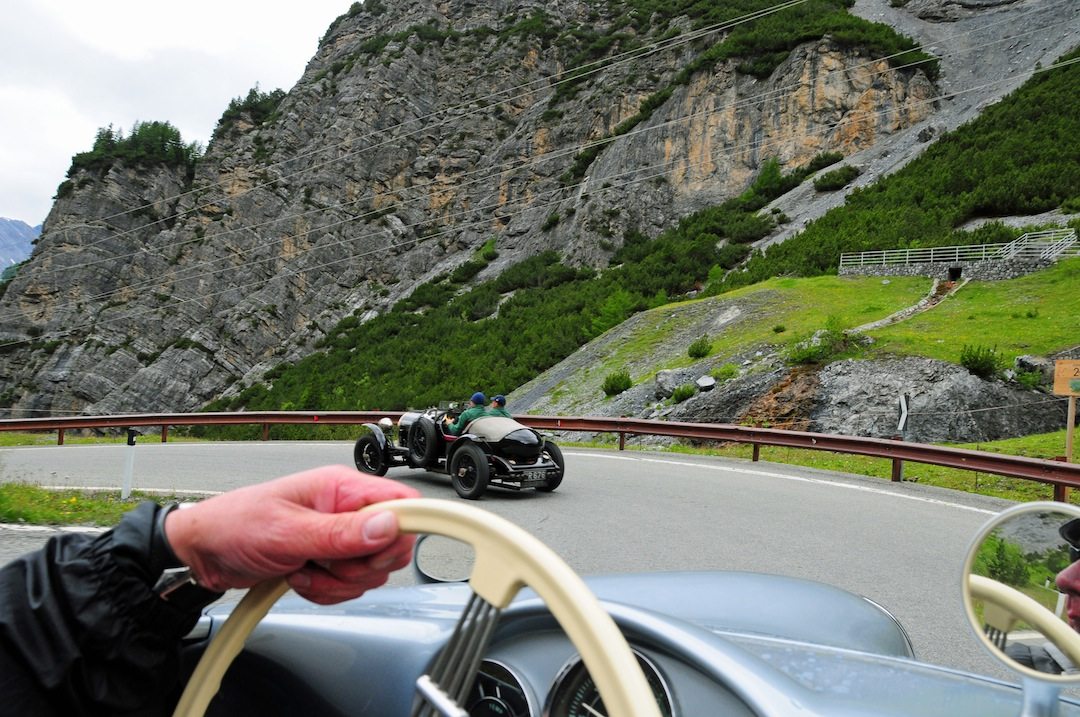
By their very nature, the cars being barchettas, their carrying capacity is low, so the organizers ensure luggage is moved from hotel to hotel by navettes, and this worked very well indeed with suitcases already in rooms upon arrival after a days’ driving.
The start was from the scrutineering location at 13:30 on the Friday, and the first afternoon settled everyone into what was ahead. It consisted of 140 kilometers over secondary and minor roads – but never rough – over two passes, the Manghen and the Lavaze, each of about 2000 meters. Just to keep everyone on their toes, a biblical downpour within 20 minutes of the start had all donning wet weather gear, but it was hot and clear on arrival in Bolzano where first the cars were displayed to the public in one of the main piazzas, before continuing to the designated hotel night-stop.
Saturday was the day of reckoning, as the not overlong 280-kilometer run included the daunting Stelvio followed by the fearsome Gavia passes. To get everyone warmed up though, crossings of the Passo Mendola and Passo delle Palade were slotted in as primi piatti before the secondi. The main road run from Merano was dealt with easily with the inestimable help of our two outrider Polizie bikers, who carved a safe passage through the tourists. Why do the latter still drive at 25-40mph, the same as they did 50 years ago, despite huge advances in motorcar dynamics?
At sea level the temperature had hovered around 26 degrees all of the morning and was at that figure as we hit the 39th tornante at the bottom of the Stelvio. As we wound our way up the ceaseless point and squirt of the seemingly vertical mountain face the weather worsened, as the temperature dropped and cloud turned to rain, sleet, hail and, finally, snow at the summit where it was -4 degrees. So much hype surrounds the climb from the east that the other side is ignored. It shouldn’t be. It is every bit as impressive in its own way and, more than that, the sun came out again.
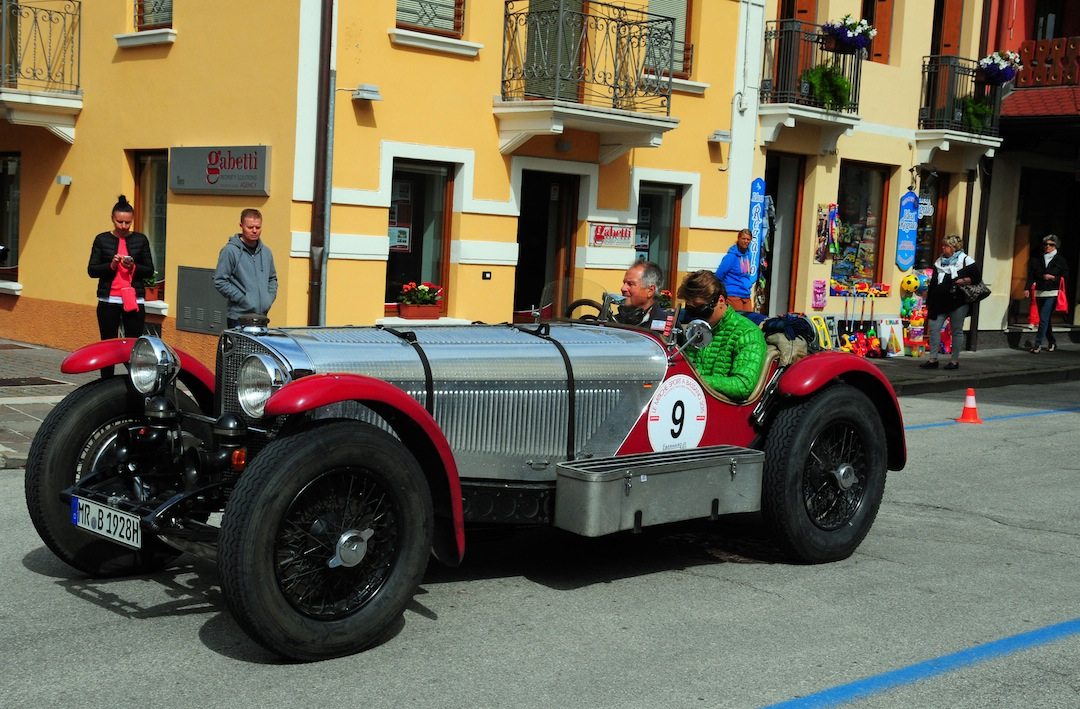
Over lunch in Bormio, I began to wonder what I was doing there with the thought of the Gavia ahead. Perhaps I shouldn’t read so much but, having watched the excellent 1958 Coupe des Alpes film and read many stories of late ’50s/early ’60s rallies over the unmetalled road I asked about it before we restarted. “The going up is no problem, it’s the coming down that needs to be treated with respect,” and so it was. With sheer drops and a road of only single-carriageway width, guarded only by marker stones, it was a fabulous experience and one to be recommended – slowly. The summit is, well, just bleak and it was almost surreal to find Matteo Crippa’s Ferrari 340 MM parked up there among the scree.
A comparatively easy afternoon run down to Trento over the Passo Tonale followed after all that excitement and, like so many of the towns and villages we passed through, we enjoyed a typically Italian enthusiastic and welcoming arrival, followed by another dinner of high standard.
Sunday morning’s return run down to Bassano was over the Passo Vezzena, with a test in the First World War battle town of Asiago to mark the centenary of the tragic event this year. A short run of only 110 kilometers allows the organizers to bring the field into the center of Bassano del Grappa for a refreshment halt and to allow the public to inspect the cars before a final start is made to cover the short 15 kilometers to the official finish in the medieval town of Marostica and its Castello.
All had a story to tell, and Eddie McGuire himself suffered a burst high-pressure oil line on the Friday that was soldered on the spot and 20 liters of oil borrowed from a passing participant to enable him to complete the last test before it closed. Similarly, the D-Type Jaguar of Christian Hore lost a core plug, but was able to borrow a spare off a passing C-Type. The crew fitted it at the roadside, refilled with coolant and headed off without too great a delay.
Throughout the event the roads were well chosen, the vistas outstanding, the overnight stops well executed. It had been a superb experience and unequivocally to be recommended. Thank you to Stefano Chiminelli and his team for three wonderful days.


